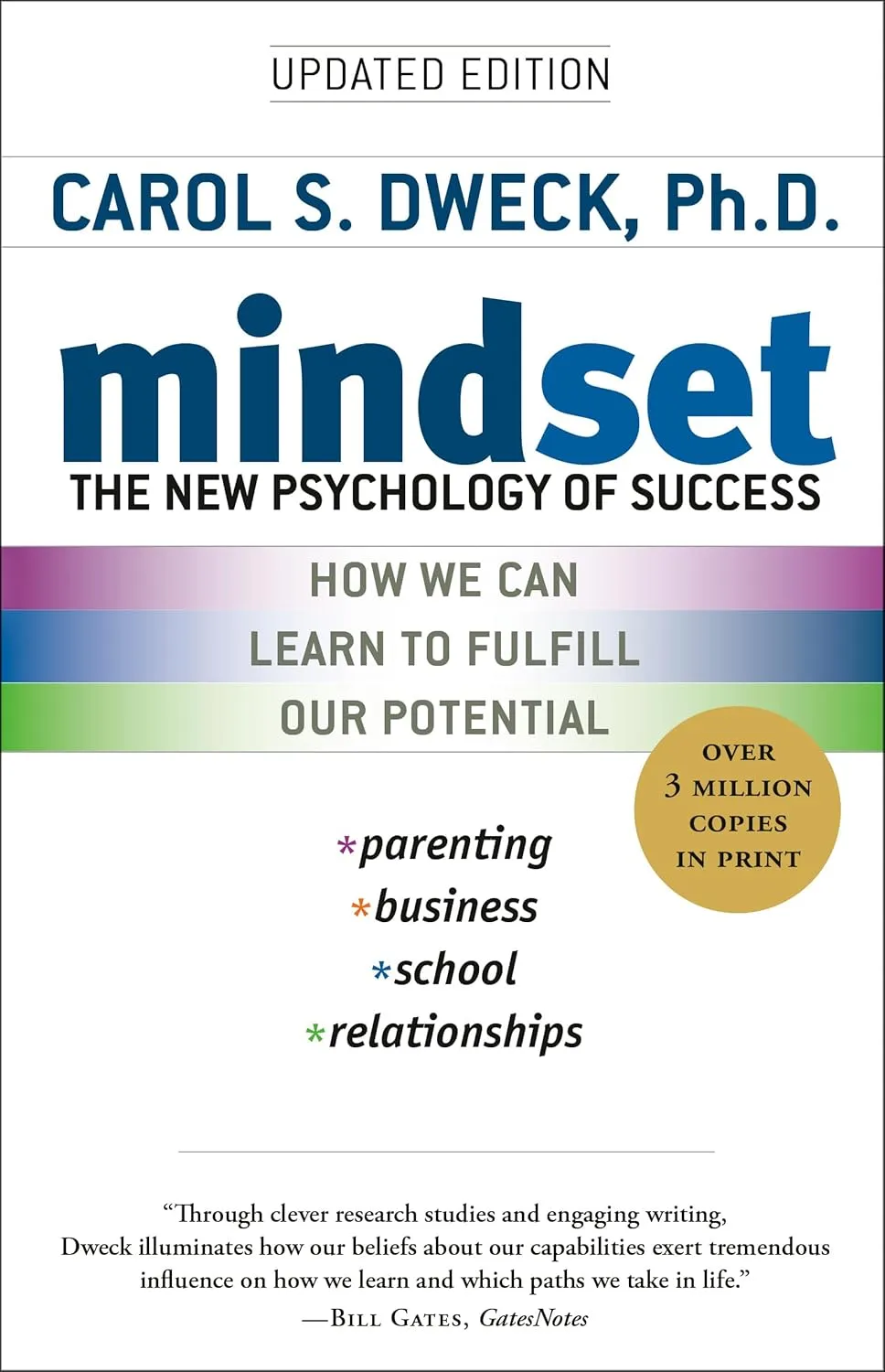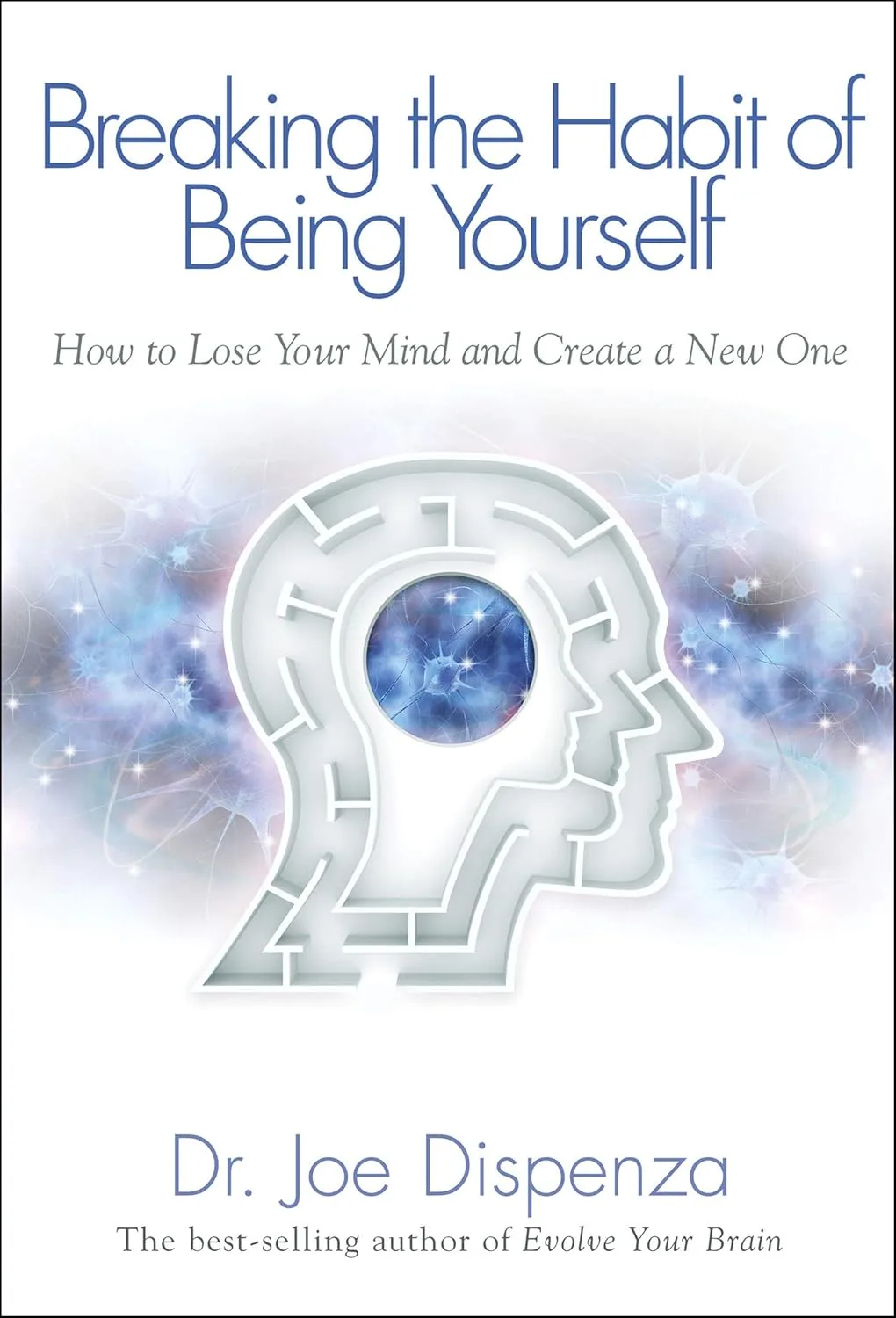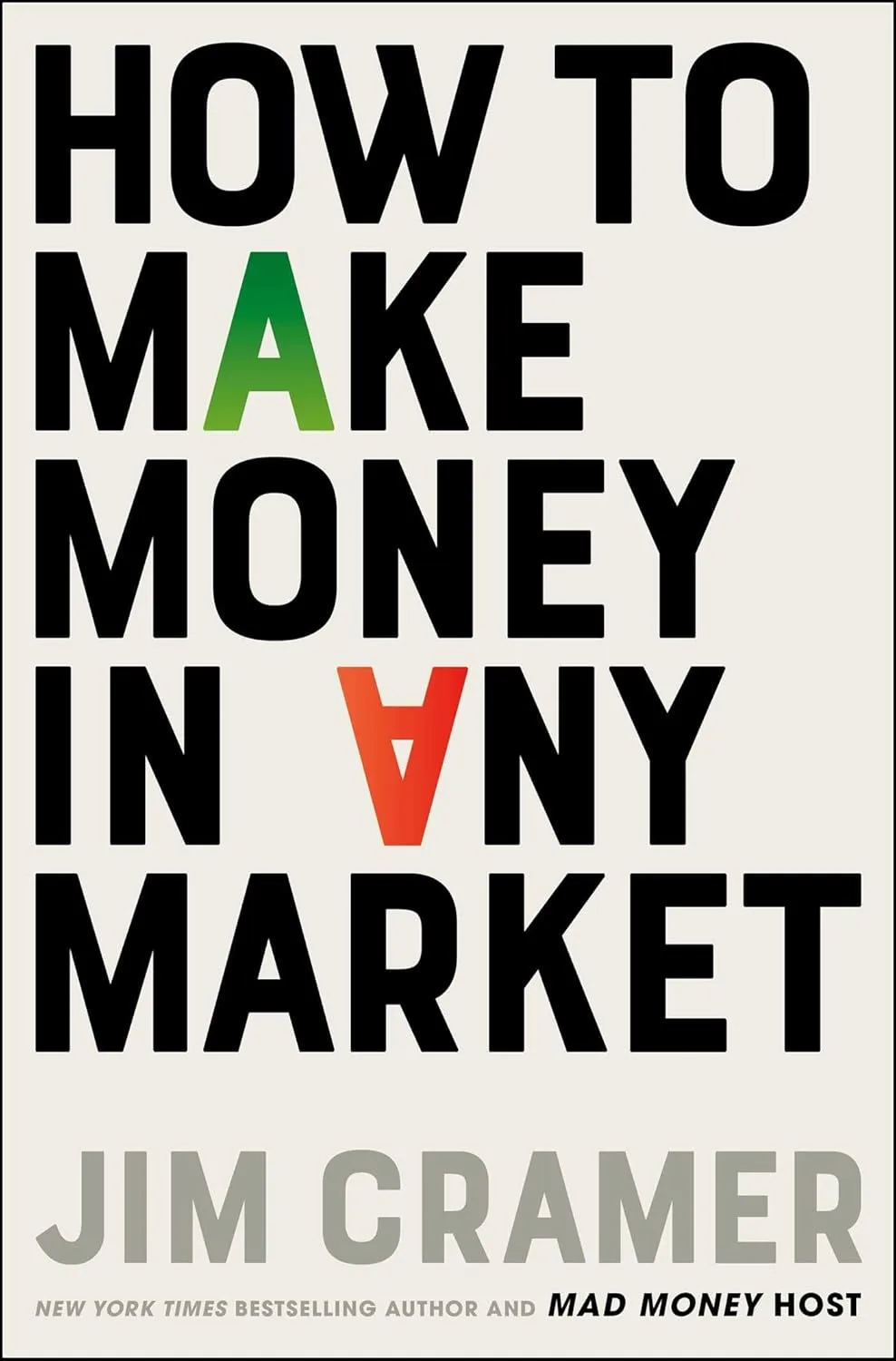Overview
“Mindset: The New Psychology of Success” by Carol S. Dweck is a revolutionary exploration of how our beliefs about our abilities shape our lives. Through decades of research at Stanford, Harvard, Columbia, and New York University, Dweck discovered that success isn’t just about talent, intelligence, or ability—it’s fundamentally about mindset.
The book introduces two distinct mindsets that govern how we approach challenges, setbacks, and growth throughout our lives. The Fixed Mindset believes that qualities like intelligence and talent are static traits, while the Growth Mindset sees these same qualities as capabilities that can be developed through dedication and hard work. This simple yet profound distinction has transformed education, parenting, business leadership, and personal development worldwide.
Dweck’s research reveals that our mindset influences everything from our relationships and parenting style to our performance in school and work. Most importantly, she demonstrates that mindsets can be changed, offering a path to greater fulfillment and achievement for individuals and organizations alike.
Key Takeaways
| Concept | Description | Impact |
|---|---|---|
| Fixed vs. Growth Mindset | Fixed: abilities are static; Growth: abilities can be developed | Fundamentally changes how we approach challenges |
| The Power of “Yet” | Adding “yet” to “I can’t do this” transforms limitation into possibility | Reframes failure as learning opportunity |
| Effort as Path to Mastery | In growth mindset, effort is what makes you smart or talented | Values process over innate ability |
| Failure as Information | Setbacks provide valuable feedback, not identity judgments | Builds resilience and persistence |
| Praise for Process | Praising effort and strategy rather than intelligence or talent | Encourages continued growth and risk-taking |
| The Learning Organization | Companies with growth mindset cultures outperform fixed mindset ones | Creates innovation and adaptability |
Book Structure
The book is organized into eight comprehensive chapters that build upon each other:
Chapter 1: The Mindsets
- Introduction to fixed and growth mindsets
- The fundamental difference in how we view our abilities
Chapter 2: Inside the Mindsets
- Deep dive into how each mindset operates
- The internal dialogue and self-talk patterns
Chapter 3: The Truth About Ability and Accomplishment
- Debunking myths about talent and genius
- How mindset affects performance and achievement
Chapter 4: Sports: The Mindset of a Champion
- Athletic examples of both mindsets in action
- How champions think differently about setbacks
Chapter 5: Business: Mindset and Leadership
- Corporate culture and leadership through the mindset lens
- Case studies of companies and CEOs
Chapter 6: Relationships: Mindsets in Love (or Not)
- How mindset affects romantic relationships and friendships
- The growth mindset approach to relationship challenges
Chapter 7: Parents, Teachers, and Coaches: Where Do Mindsets Come From?
- How authority figures shape mindset development
- Strategies for fostering growth mindset in others
Chapter 8: Changing Mindsets
- Practical steps for developing a growth mindset
- The journey from fixed to growth thinking
About the Author
Dr. Carol S. Dweck is one of the world’s leading researchers on motivation and mindset. Her groundbreaking work has revolutionized our understanding of learning, achievement, and personal development.
Academic Credentials:
- Lewis and Virginia Eaton Professor of Psychology at Stanford University
- Former faculty at Yale, Columbia, Harvard, and New York University
- Member of the American Academy of Arts and Sciences
- Ph.D. in Social and Developmental Psychology from Harvard University
Research Impact:
- Over 30 years researching motivation, personality, and development
- Her work has been featured in major publications worldwide
- Consultant to numerous organizations on motivation and mindset
- Pioneer in understanding the psychology of success and failure
Dweck’s research spans multiple domains including education, business, sports, and relationships, making her insights universally applicable to human development and achievement.
Why This Book Resonates
“Mindset” has become a phenomenon because it addresses fundamental questions about human potential and achievement. The book resonates powerfully for several reasons:
- Scientific Credibility: Based on rigorous research conducted over decades at prestigious institutions, lending authority to its claims.
- Universal Application: The mindset framework applies to every area of life—education, parenting, business, relationships, and personal growth.
- Actionable Insights: Unlike abstract psychology, Dweck provides concrete strategies for developing a growth mindset.
- Empowering Message: The book offers hope by demonstrating that our most basic abilities can be developed through dedication and smart effort.
- Cultural Shift: It challenges deeply held beliefs about talent and intelligence, offering a more democratic view of human potential.
- Real-World Examples: Rich case studies from sports, business, and education make the concepts tangible and memorable.
Ideal Audience
This book is essential reading for:
- Educators and Teachers looking to foster student growth and resilience
- Parents who want to raise confident, resilient children
- Business Leaders and Managers seeking to build innovative, adaptive teams
- Students and Learners of all ages wanting to maximize their potential
- Coaches and Mentors developing others’ capabilities
- Anyone struggling with perfectionism or fear of failure
- Organizations looking to create cultures of continuous learning
- Individuals seeking personal growth and self-improvement
The book’s insights are particularly valuable for anyone in a position of influence over others’ development or anyone looking to unlock their own potential.
Memorable Quote
“In a growth mindset, challenges are exciting rather than threatening. So rather than thinking, oh, I’m going to reveal my weaknesses, you think, wow, here’s a chance to grow. Most people think of challenges as something that reveals your deficiencies. But with a growth mindset, challenges are something that enhances your abilities.”
Central Themes
| Theme | Core Message | Application |
|---|---|---|
| Neuroplasticity | The brain can form new connections throughout life | Abilities can be developed at any age |
| Process Focus | Emphasis on effort, strategy, and progress over outcomes | Praise the journey, not just the destination |
| Failure Reframed | Setbacks are opportunities for learning and growth | View mistakes as valuable feedback |
| The Power of Belief | What we believe about our abilities shapes our reality | Examine and challenge limiting beliefs |
| Continuous Learning | Growth mindset creates lifelong learners | Embrace challenges as growth opportunities |
| Leadership Development | Great leaders foster growth mindset in others | Create cultures that value learning over knowing |
| Resilience Building | Growth mindset develops psychological resilience | Bounce back stronger from adversity |
Additional Insights
The False Growth Mindset
Dweck warns about the “false growth mindset”—when people claim to have a growth mindset but their actions reflect fixed mindset thinking. True growth mindset requires:
- Genuine belief in the power of effort and learning
- Willingness to be vulnerable and make mistakes
- Focus on the process of improvement, not just positive outcomes
Mindset in Different Domains
Education: Students with growth mindset show increased motivation and achievement. They see intelligence as expandable rather than fixed.
Parenting: Growth mindset parents focus on effort and learning rather than praising intelligence. They model resilience and learning from mistakes.
Business: Companies with growth mindset cultures show greater innovation, collaboration, and adaptability. Employees feel safe to take risks and learn.
Relationships: Growth mindset in relationships means viewing conflicts as opportunities to grow together rather than threats to compatibility.
The Mindset Continuum
Dweck emphasizes that mindset isn’t binary—we all have both fixed and growth mindset areas. The goal is to:
- Recognize our fixed mindset triggers
- Develop awareness of our mindset in different situations
- Gradually shift toward more growth mindset thinking
Neurological Basis
Recent neuroscience research supports Dweck’s findings:
- Brain Plasticity: The brain continues to form new neural pathways throughout life
- Myelin Development: Practice and effort literally strengthen neural connections
- Error Processing: Growth mindset individuals show different brain patterns when processing mistakes
Practical Applications
For Individuals:
- Self-Talk Awareness: Notice and change fixed mindset internal dialogue
- Process Goals: Focus on learning and improvement rather than performance goals
- Failure Analysis: Ask “What can I learn?” instead of “Why did I fail?”
- Challenge Seeking: Deliberately step outside comfort zones
For Parents:
- Process Praise: “I’m proud of how hard you worked” vs. “You’re so smart”
- Model Learning: Show children you’re still learning and growing
- Normalize Struggle: Frame difficulties as normal parts of learning
- Growth Language: Use “yet” language consistently
For Educators:
- Teaching About the Brain: Help students understand neuroplasticity
- Mistake-Friendly Environment: Create safe spaces for learning from errors
- Effort Recognition: Acknowledge and celebrate improvement processes
- Challenge Appropriateness: Provide optimal levels of difficulty
For Leaders:
- Learning Culture: Reward risk-taking and learning from failures
- Development Focus: Emphasize employee growth over just performance
- Feedback Systems: Provide developmental rather than judgmental feedback
- Model Growth: Demonstrate your own learning and vulnerability
FAQ
Q: Can someone really change their mindset? A: Yes, but it takes awareness, effort, and practice. Mindset exists on a continuum, and people can develop more growth mindset thinking over time.
Q: Isn’t some praise for intelligence or talent okay? A: Occasional praise for ability isn’t harmful, but consistent process praise is more effective for long-term motivation and resilience.
Q: How do you maintain a growth mindset during serious setbacks? A: Focus on what you can control (effort, strategy, asking for help) rather than what you can’t. View setbacks as information rather than verdicts.
Q: Does growth mindset mean everyone can achieve anything? A: Growth mindset doesn’t guarantee specific outcomes, but it maximizes your potential for growth and achievement within your circumstances.
Q: How young can children develop a growth mindset? A: Research shows that very young children can begin to understand growth mindset concepts, especially through modeling and appropriate language.
Q: What about natural talent—doesn’t it matter? A: Natural abilities provide starting points, but development through effort typically matters more for long-term achievement.
Research Foundation
Dweck’s conclusions are based on extensive research including:
Longitudinal Studies: Following children and adults over time to track mindset effects on achievement and motivation.
Experimental Interventions: Testing the impact of mindset training on performance in various settings.
Brain Imaging Studies: Using neuroscience to understand how mindset affects brain function and development.
Cross-Cultural Research: Examining mindset effects across different cultures and contexts.
Organizational Studies: Investigating how mindset affects company culture and performance.
Final Thoughts
“Mindset” represents a paradigm shift in how we think about human potential and achievement. Dweck’s research reveals that our beliefs about our abilities are not just philosophical positions—they have profound practical consequences for how we live, learn, and lead.
The book’s most powerful insight is that the qualities we often consider fixed—intelligence, talent, personality—are actually malleable. This doesn’t diminish the importance of natural gifts, but it democratizes excellence by showing that virtually anyone can improve significantly through focused effort and effective strategies.
For educators, parents, leaders, and individuals, “Mindset” offers both a lens for understanding behavior and a toolkit for fostering growth. The growth mindset isn’t just about positive thinking—it’s about creating the conditions where learning, resilience, and achievement can flourish.
Perhaps most importantly, Dweck shows us that we have more control over our lives than we might think. By changing how we think about our abilities, we can change our trajectories in profound and lasting ways.







